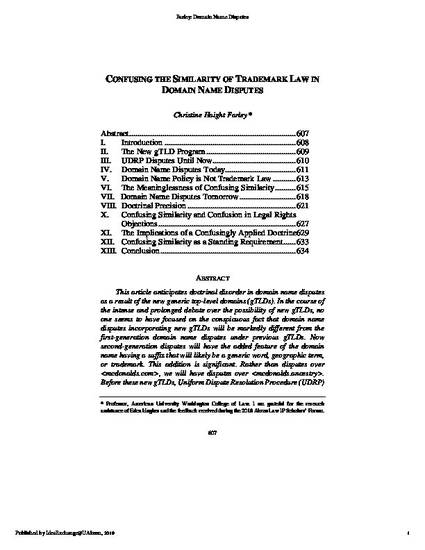
Akron Law Review
This article anticipates doctrinal disorder in domain name disputes as a result of the new generic top-level domains (gTLDs). In the course of the intense and prolonged debate over the possibility of new gTLDs, no one seems to have focused on the conspicuous fact that domain name disputes incorporating new gTLDs will be markedly different from the first-generation domain name disputes under previous gTLDs. Now second-generation disputes will have the added feature of the domain name having a suffix that will likely be a generic word, geographic term, or trademark. This addition is significant. Rather than disputes over mcdonalds.com, we will have disputes over mcdonalds.ancestry. Before these new gTLDs, Uniform Dispute Resolution Procedure (UDRP) panels have routinely ignored the gTLD portion of the domain concluding that the suffix is inconsequential to their determinations of confusing similarity. This approach has already changed. While this change may seem trivial especially in a non-precedential system, the consequence of this change may be profound for trademark owners’ rights on the internet and portend a fundamental shift in how trademarks will be called upon to pick winners and losers in this new land grab.
Available at: http://works.bepress.com/christine_farley/61/
